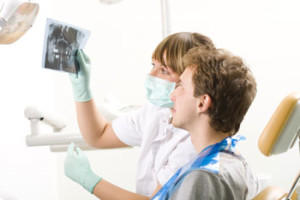 A tooth infection is the build-up of pus and bacteria inside the teeth or gums. The bacteria cause tooth infections. And if left untreated, the bacteria inside the tooth might spread to the jaw. So, if it to the jaw, it could lead to serious and potentially life-threatening conditions.
A tooth infection is the build-up of pus and bacteria inside the teeth or gums. The bacteria cause tooth infections. And if left untreated, the bacteria inside the tooth might spread to the jaw. So, if it to the jaw, it could lead to serious and potentially life-threatening conditions.
What Happens If a Tooth Infection Spreads to Your Jaw?
Here is what happens if tooth infection spreads to the jaw:
A tooth infection spreading to the jaw could lead to toothache, bone infection, tooth loss, blood infection, and inflammation throughout the body.
Toothache
If there is an opening in the tooth enamel, then bacteria might infect the pulp of the tooth. The infection might spread from the root of the tooth to the jaw. The infection could cause a toothache. Why? Because the infection could lead to tissue swelling and buildup of pus within the tooth and jaw.
Bone Infection
The presence of bacteria inside the tooth could lead to bone infection. The bacteria travel from the pulp of the tooth to the jaw, causing bone infection. And the bacteria can destroy the supporting bones over time. The bone infection could cause swelling and dissolve the jaw bone. The swelling can damage the bone and lead to bone loss.
Tooth Loss
Once the infection spreads to the jaw, the bone structures of the jaw become weak. A weak jaw bone structure does not support the teeth. So, if a person does not treat their tooth infection, they will lose more teeth later in life. If a tooth falls out, it leaves an empty space in the jaw, leading to bone loss and tooth loss.
Inflammation
If a person does not treat a tooth infection, the infection could spread to the jaw bones and other parts of the body. In fact, the bacteria from the tooth infection could spread to the jaws and enter the bloodstream to cause inflammation throughout the body. The inflammation could rupture organs and block arteries.
Blood Infection
Last, but not least, the bacterial infection could spread to the jaw and through the entire bloodstream. If bacteria from the tooth infection enters the bloodstream, it could lead to adverse effects. The person may experience a rapid heartbeat, high fever, chills, confusion, vomiting, and severe nausea. Blood infection can cause shock and organ failure.
Final Thoughts
Most tooth infections are easy to treat. Early treatment can stop the tooth infection from spreading to the jaw. However, if the tooth infection spreads to the jaw, the infection could become severe and life-threatening. Maintaining good oral hygiene and visiting the dentist regularly can prevent tooth infections.
Back to dentalemergencyalbuquerque.com


